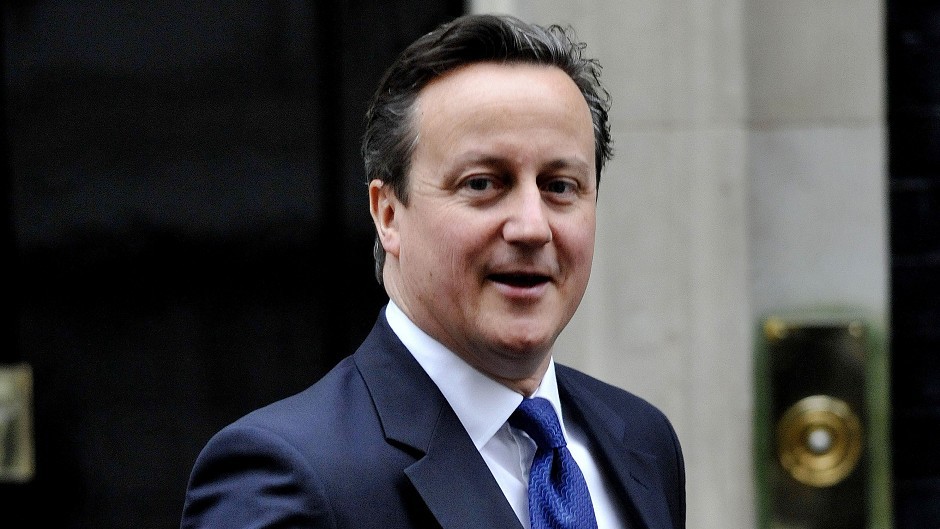Legislation to deliver new powers for Scotland will be built to last and help secure the UK’s “united future”, the Prime Minister has said.
David Cameron was speaking as draft clauses that will form the basis of new laws were published by the UK Government.
The Prime Minister, who is visiting Scotland today, together with the other main Westminster leaders had pledged to deliver new powers to Holyrood if Scots rejected independence in last year’s referendum.
A total of 44 draft clauses, which will underpin new legislation, have now be published.
Mr Cameron has already pledged they will become law in the next parliament, regardless of who wins May’s general election.
UK Government ministers insisted the proposals will transform the Scottish Parliament into one of the most powerful devolved assemblies anywhere in the world.
The Scottish Government has welcomed the changes – which had been put forward by the Smith Commission – but has argued that the new powers do not go far enough.
Mr Cameron said: “In September the people of Scotland came out in record numbers to decide the future of the United Kingdom.
“They voted clearly and decisively to keep our family of nations together. But a No vote did not mean no change.
“The leaders of the other main political parties and I promised extensive new powers for the Scottish Parliament – a vow – with a clear process and timetable.
“And now here we have it: new powers for Scotland, built to last, securing our united future.”
The legislation will state clearly for the first time that the Scottish Parliament is a permanent institution.
Powers over Holyrood and local government elections north of the border will also be handed to MSPs.
New tax powers will see Scotland get the ability to control and set income tax rates and bands, and will also mean cash raised from the levy north of the border will stay in Scotland, rather than go to the Treasury.
As a result, the Scottish Government’s block grant from Westminster “will be reduced to reflect the tax revenues that the UK Government will forego as a result”, the command paper sets out.
Powers over air passenger duty (APD) are also to be devolved, with the clauses including “provision for appointing the day when APD will be switched off in relation to Scotland”.
Holyrood will also get new powers over welfare, and although the new Universal Credit will remain under Westminster control, the Scottish Parliament is to be given the power to vary the housing cost elements of this, including the controversial under-occupancy charge – branded the “bedroom tax” by its opponents.
“This means that Scottish ministers will be able to decide whether to apply any under-occupancy reductions,” the command paper states.
